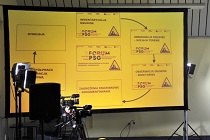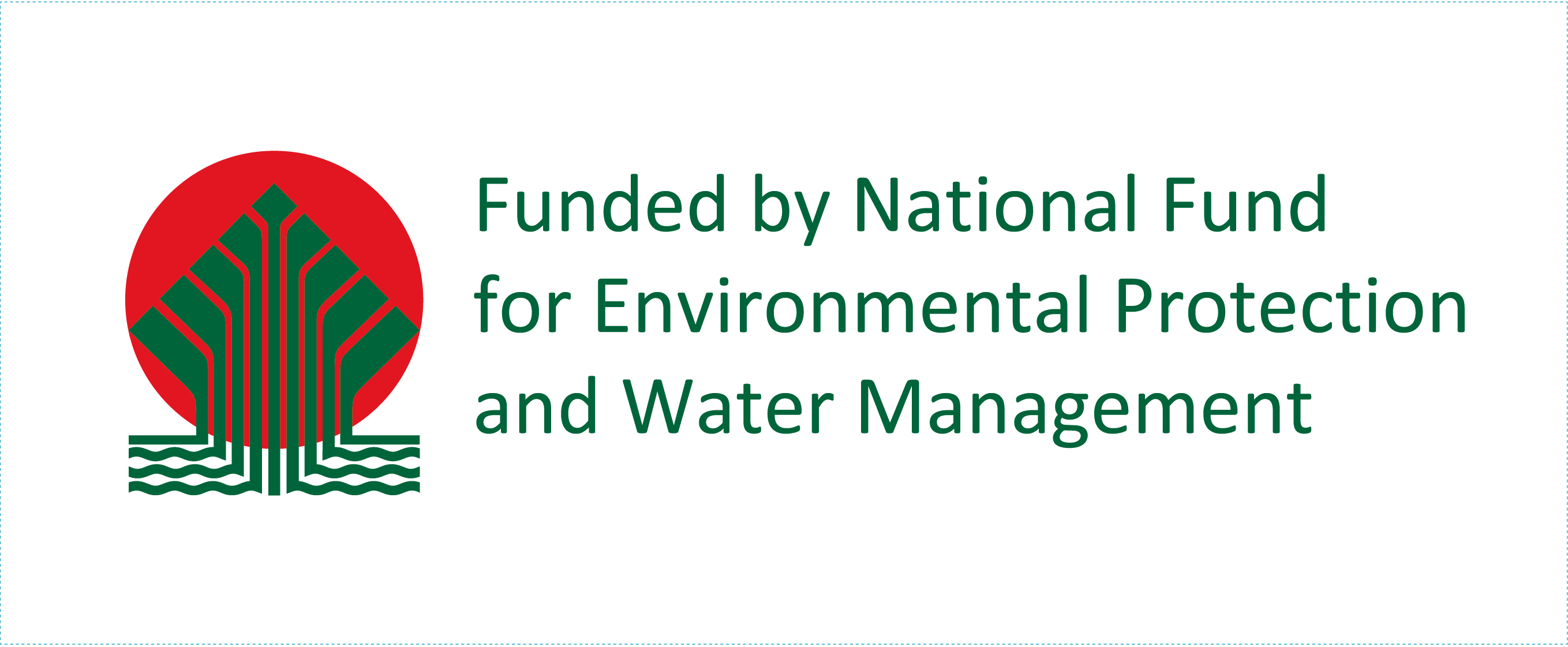 The new regulation of the Minister of Climate and Environment on mass movements and its consequences for the Landslide Protection System was the main topic of the 2nd Forum of the Polish Geological Survey held on the 10th of June, 2021 in Cracow, Poland.
The new regulation of the Minister of Climate and Environment on mass movements and its consequences for the Landslide Protection System was the main topic of the 2nd Forum of the Polish Geological Survey held on the 10th of June, 2021 in Cracow, Poland.
The Forum was organized online for the first time and gathered over 300 participants in front of computer screens. The signal was broadcast from the studio in the Carpathian Branch of the Polish Geological Institute-NRI.
Recall - the Minister's regulation is effective from February 18, 2021. First of all, it modifies the rules of collecting information on mass movements. It provides for the introduction of new methods of landslide monitoring, greater competences of starosts and a more precise definition of procedures for entering information into the mass movement database. At the beginning new regulations may cause interpretation difficulties, which may result in misunderstandings. The Cracow conference was organized in order to dispel possible doubts and explain how to apply these provisions in practice.
„I know from my cooperation with you - I mean mainly the local government administration on whose shoulders lays the obligation to keep the register of landslides and areas threatened by landslides - that you encounter numerous problems. I hope that the recommendations presented by us will prove helpful in your everyday work", said Mateusz Damrat, Ph.D., Director of the Polish Geological Institute - National Research Institute (PGI-NRI) at the opening of the 2nd Forum. Director Damrat welcomed the guests and emphasized that sharing knowledge and experience is not only a very important task of the Polish Geological Survey (PSG), but also its mission.
The assumptions of the new regulation were outlined in the introductory part of the Forum by Dr. Piotr Dziadzio, Undersecretary of State in the Ministry of Climate and Environment, Government Plenipotentiary for National Resources Policy and Poland’s Chief Geologist. He also stressed the PSG’s role in landslide monitoring and initially discussed the operation of the Landslide Protection System (SOPO). - This is a very important project. It has both social and economic importance for us - said Dr. Dziadzio and pointed out that the damage caused by mass movements brings losses, which in turn generate huge costs.

Dr. Tomasz Wojciechowski, Head of the Geohazards Center during the 2nd PSG Forum - Geological hazards in Poland. Landslide problems
This was also emphasized by Dr. Tomasz Wojciechowski, head of the Geohazards Center, who in his introductory paper reminded what geological hazards exist in Poland and how to minimize landslide risk.
Jacek Gołda, director of the Department of Infrastructure and Agriculture Programs of the Małopolska Voivodship Office spoke about dynamic cooperation with PGI-NRI. Beata Traczyk from the National Fund for Environmental Protection and Water Management handed over a letter in which she highly appreciated the existing contacts with the Polish Geological Survey and the undertakings carried out together with the Institute and financed by the Fund.

Dr Tomasz Wojciechowski, head of the Geohazards Center at PGI - NRI during the 2nd Forum of the Polish Geological Society - Geological Hazards in Poland. Landslide problems
The main part of the Forum - a block of presentations - was devoted to detailed discussion of landslide issues - from legal assumptions, to methodology of landslide reconnaissance and monitoring. Three experts, Dr. Tomasz Wojciechowski, head of the Polish Geoscience Center, Mr. Paweł Marciniec, head of SOPO and Dr. Eng. Izabela Laskowicz, head of the Carpathian Branch of Polish Geological Institute PGI-NRI, explained how to inventory landslides, conduct field inspections, conduct monitoring or document mass movements given the new regulation. Participants of the Forum were also acquainted with details of cooperation between geologists and local governments as part of SOPO. Thanks to the possibility to ask questions through a special form, they could dispel possible doubts, ask for clarification of some issues and take part in the final discussion.

Experts from the Polish Geological Institute-NRI answered questions asked by the participants of the 2nd PGI Forum. From the left: Dr. Izabela Laskowicz, Director of the Carpathian Branch of PGI-NRI, Dr. Tomasz Wojciechowski, Manager of the Geoscience Center and Paweł Marciniec, Manager of SOPO
Part of the meeting was also devoted to the so-called landslide amnesia, which affects residents of endangered areas. Several years after the occurrence of even catastrophic mass movements, scientists notice symptoms of denial or disregard for risk. Meanwhile, residents of southern Poland have become convinced of the strength of mass movements several times over the past two decades. The most dramatic situation occurred in the summer of 2010 during the so-called landslide disaster. Landslides that became active at that time in Silesia, Lesser Poland and Podkarpacie damaged or completely destroyed more than 1400 houses, depriving some residents of their entire life's possessions. Immense damage to the road and railroad infrastructure was reported. The Polish Geological Survey intervened 1311 times.
Landslide movements are one of the most important challenges faced by local governments and local and government administration, especially in the south of the country. Hence, the great interest in this issue and in new legal and technical solutions aimed at minimizing the effects of mass movements. Therefore, among the participants of the forum there were representatives from all the provinces. They represented district, city, marshal and provincial offices, geological companies, universities, General Directorate for National Roads and Highways, ministries of Climate and Environment, Internal Affairs and Administration, regional planning offices and PKP Polish Railways (pol. PKP Polskie Linie Kolejowe).
For the first time the conference took place online. In the auditorium of the Carpathian Branch in Cracow a studio was set up, equipped with several cameras, a huge screen and a small director's room. This allowed participants from all over Poland to participate in real-time the Forum.
At previous conferences organized by the Geoscience Center, there was always a field trip. You could see landslide formations on site and see the effects of mass movements. This time the trip was prevented by a pandemic. Nonetheless, PGI-NRI geologists took the Forum guests on a fieldtrip - virtually. They prepared animations and several films explaining landslide formation, field inspection methods, principles and methods of monitoring and included them in the presentation. This procedure proved to be successful and was appreciated by the Forum participants.
We encourage you to watch the full video from the 2nd PSG Forum on the Polish Geological Institute – NRI’s YouTube channel.
Text: Geohazard Center Team (AR, TW)
Photos: Michal Zieliński
Translated by Tomasz Trzpil (PGI-NRI)















 PGI-NRI offer
PGI-NRI offer Mineral resources of Poland
Mineral resources of Poland  Oil and Gas in Poland
Oil and Gas in Poland 



 Subscribe to RSS Feed
Subscribe to RSS Feed